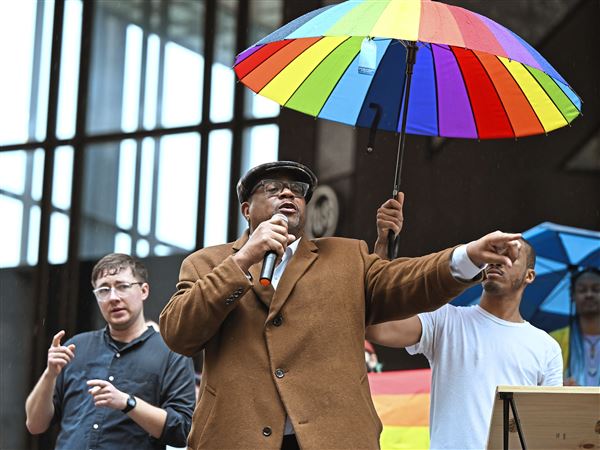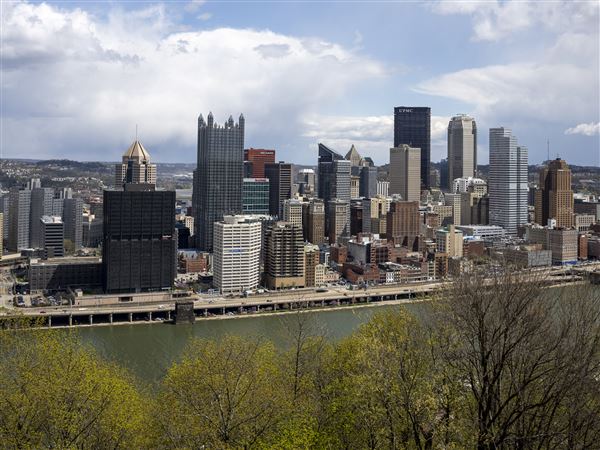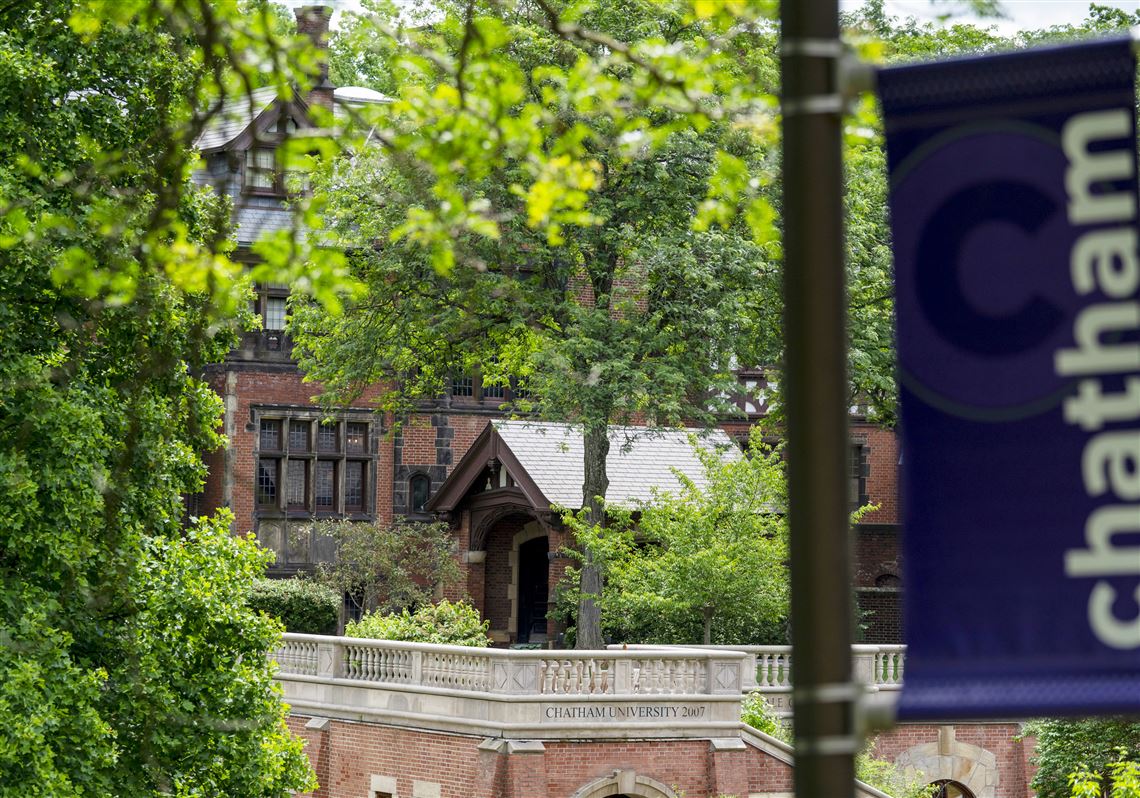Pittsburgh’s Urban Redevelopment Authority on Thursday approved a major change in operations at the historic Hunt Armory center, along with critical funding for refugee resettlement groups and loans for two new affordable housing projects.
The URA authorized a 10-year lease agreement with Chatham University on the ice rink at 324 Emerson St., including an option to purchase the armory for $2 million or extend the lease for another decade.
The Pittsburgh Penguins’ lease to run the rink expires in May, and the team has been working with Chatham and the URA on plans, Penguins President of Business Operations Kevin Acklin said.
Chatham plans to invest $15 million in the facility to turn it into a permanent rink, open year-round as a home base for the school’s men’s and women’s hockey teams, according to the URA’s agenda materials.
Conversations with the university opened up as the Penguins’ lease expiration neared, and the school plans to continue some of the programming currently offered at the rink when it takes over, URA Chief Development Officer Thomas Link said Thursday.
“We feel like we can become a very good partner for revitalizing the Hunt Armory,” Chatham University President Rhonda Phillips said. “Instead of it being vacant in the future, it could be a viable asset that we can use for supporting our sports and recreation, and also look at ways to partner to help make it a resource that the community can use.”
The approval was step one in a long process of transferring operations at the rink, according to Mr. Link.
Filling critical funding gaps
Also Thursday, the URA authorized a grant of up to $224,000 to support emergency housing services provided by refugee resettlement agencies in Pittsburgh.
The money will help bridge a funding gap created by a Jan. 24 order from the Trump administration, said Jewish Family and Community Services Chief Operating Officer Dana Gold. The order prevents agencies from using federal dollars — a key funding source — to provide housing assistance and other services to refugees during their first three months in the U.S.
Three of Pittsburgh’s four resettlement groups — Hello Neighbor, Jewish Family, and Community Services and Acculturation for Justice, Access, and Peace Outreach — will receive funds. Money will support security deposits, rent payments, furniture and other housing-related needs for refugees, according to URA agenda materials.
The grant amounts to one-third of the total funding — $627,000 — organizations said they need to make up lost dollars.
Allegheny County Executive Sara Innamorato announced in February that the county would also supply $224,000 to the groups. The URA, city and county are working with local foundations to come up with additional funds, according to URA Chief Housing Officer Quianna Wasler.
“Pittsburgh always has been a place where people from all around the country — all around the world — can come and make this home, strengthen our communities and build a better future for themselves and a better America [and] better Pittsburgh in the process,” URA board member Sam Williamson said.
New affordable housing projects
Two affordable housing projects also received funding Thursday.
A new, 103-unit development at 121 Dinwiddie St. in Crawford-Roberts will receive a loan of up to $3.25 million. All units will be designated affordable, with 50 priced at or below 60% of the area’s median income. At least 5% of apartments in the complex will be accessible for residents with disabilities. The project is expected to cost a total of $49 million.
And in Hazelwood, the URA authorized a loan of up to $2 million for a new five-story apartment building — the first residential development at Hazelwood Green, the former steel mill turned tech and robotics hub.
The project will feature 50 units, including 33 one-bedroom apartments and 17 two-bedroom apartments; 40 will be designated affordable.
The first floor of the new building will feature amenities designed for community use, such as supportive spaces for parents of young children who are pursuing high education through the Pittsburgh Scholar House.
Construction on the project, expected to cost a total of $23 million, is set to begin this summer and wrap up by spring of 2027.
First Published: April 10, 2025, 10:12 p.m.
Updated: April 11, 2025, 6:55 p.m.



















